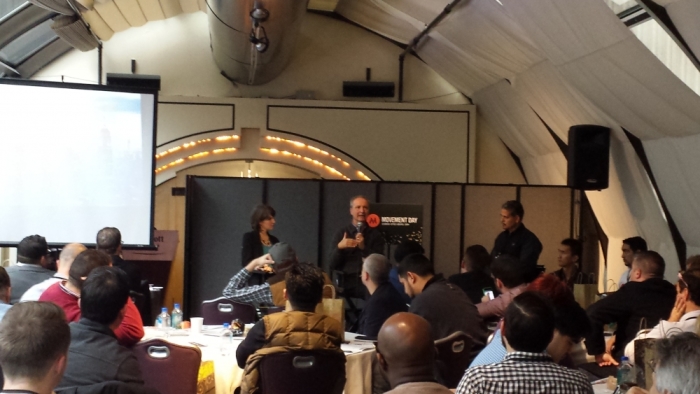Sabbath or Die? Church Planters Talk the Importance of Godly Rest at Leadership Conference

NEW YORK — The founder of New Life Fellowship Church in Queens, New York, pastor Pete Scazzero said he knew that an 80-hour work week with no rest was one of the issues holding his church back, in the past, from experiencing change for the better.
At this year's Movement Day leadership conference held last week in New York City, one of the tracks, hosted by Scazzaor, addressed the issue of burnout and focused on helping pastors find healthy rhythms to sustain church planting.
"I've yet to meet a pastor whose life is balanced, rhythmic, whole, centered, anchored who is not practicing Sabbath," said Scazzaro to those in attendance for the Track. "I'm talking about globally."
The track featured eight speakers and emphasized the importance of Sabbath rest.
After describing his experiences with planting multicultural churches for the past eight years in New York City and how he experienced the difficulty of not seeing those in his congregation grow internally, Scazzero said he knew something had to change.
He outlined some strong principals for church planters to keep in mind for their "inner life" with one of them including the practice of delighting in the Sabbath.
Scazzero explained how a true Sabbath is more than just a day off and described it as a "spiritual formation discipline." Stopping for a 24-hour period each week is necessary for the believer and should not be viewed as a legalistic practice, according to Scazzero. He compared it to scripture reading and praying as all of these disciplines are necessary for growth as a Christian.
He used scripture to illustrate how Sabbath also solidifies one's identity as one of God's people by discussing how the story of the Israelites being handed down this commandment after being freed from slavery in Egypt.
"In Deuteronomy, Moses [discussed] that in Egypt [the Israelites] worked 400 years without a day off. [Their] whole identity was in work and what [they] produced. In fact as a slave, you weren't producing, you weren't fit to live," he said. "But God says no I saved you by grace and now your life is not about your work. It's about me. It's about resting in the Gospel."
He said it was about separating God's people from Pharaoh who represented all the demonic powers in the world at that time.
"Therefore when we Sabbath we are resisting powers and principalities of the air," he said. "It's saying I am not a slave to anything. I belong to Jesus. And we do it not just for us. We actually Sabbath for our church. We Sabbath for the world. The problem is when you're church planting, you can end up feeling like you're a slave."
Scazzero explained that in order to have a true Sabbath, Christians need time during the week to get their unpaid work such as bill paying, banking and chores done in order to clear time for Godly rest. He said that we stop because God is running the world and not us.
The track also featured some church planters, including pastor Edwin Colon of Recovery House of Worship in Brooklyn, New York who shared his horror story about how working himself ragged while planting a church almost ruined his family and life.
He started out his church by ministering to homeless people and dedicated all of his time to this work sacrificing family and personal time. No matter the price, Colon and those with him would try and help these people which eventually lead to a church that could no longer pay him and him losing his house.
Colon, his wife and four children moved into his office and lived there for a good amount of time. Even with that drastic change, he still did not realize his error. His moment of clarity came when he was taking his son to his first day at college. His tire went flat on the trip there and his son had to leave and walk the rest of the way in order to make it to class on time.
Colon anticipated seeing his son off, imparting some wisdom to him and loving on him for that day and none of that happened. He was only able to offer him a brief sentiment of encouragement. All of his time had been dedicated to the ministry and their relationship suffered because of it. From that point forward he decided to have Sabbath in order to experience time with his family and rest from the work that was consuming his life in an unhealthy way.
This track titled "Healthy Rhythms For Sustainable Church Planting" was one of 14 at Movement Day aimed at helping leaders.




























